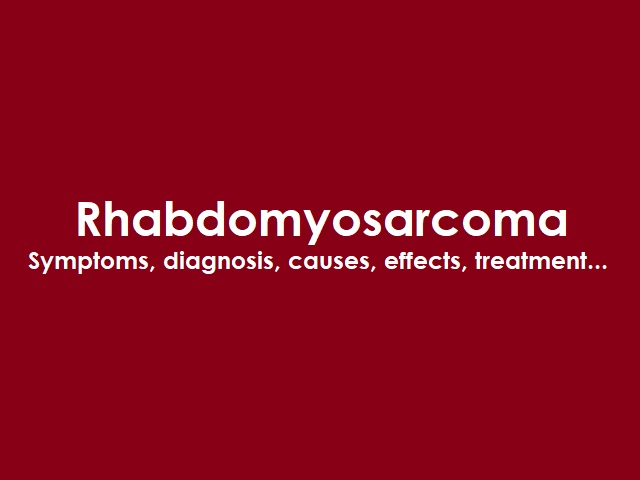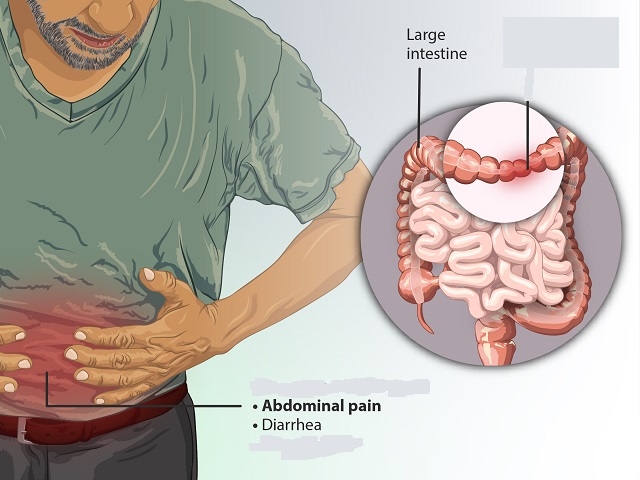4 Signs You May Have Rhabdomyosarcoma -- Symptoms, Causes, Effects, Treatment and Prevention
Rhabdomyosarcoma is a rare type of cancer that originates in the soft tissues, particularly in the cells that form skeletal muscle. It is a malignant tumor that develops from immature muscle cells. It can occur in various parts of the body, including the head and neck region, genitourinary system, arms, legs, and trunk. There are different subtypes of rhabdomyosarcoma, which have varying characteristics and treatment approaches. It primarily affects children and adolescents. Here is an explanation of rhabdomyosarcoma, along with its symptoms, diagnosis, causes, effects, treatment, and prevention:
Symptoms of Rhabdomyosarcoma:
The symptoms of rhabdomyosarcoma can vary depending on the location and size of the tumor. Common signs and symptoms may include:
- Swelling or a mass: A noticeable lump or swelling in the affected area.
- Pain or discomfort: Persistent pain or discomfort at the tumor site.
- Limitation of movement: Restricted movement or function in the affected body part.
- Unexplained weight loss: Significant and unexplained weight loss in some cases.
Diagnosis of Rhabdomyosarcoma:
Diagnosing rhabdomyosarcoma involves several methods to assess and confirm the presence of the tumor:
- Medical history and physical examination: A healthcare professional will inquire about symptoms, perform a physical examination, and evaluate the affected area.
- Imaging tests: Imaging techniques such as MRI, CT scan, or ultrasound are used to visualize the tumor and assess its location and extent.
- Biopsy: A tissue sample from the tumor is collected for laboratory analysis to confirm the presence of rhabdomyosarcoma cells and determine the specific subtype.
Causes of Rhabdomyosarcoma:
The exact cause of rhabdomyosarcoma is unknown. However, certain risk factors may increase the likelihood of developing this cancer, including:
- Genetic predisposition: Some genetic conditions, such as Li-Fraumeni syndrome or neurofibromatosis type 1, are associated with an increased risk of rhabdomyosarcoma.
- Exposure to radiation: Previous exposure to high-dose radiation therapy may increase the risk of developing rhabdomyosarcoma.
Effects of Rhabdomyosarcoma:
If left untreated or undetected, rhabdomyosarcoma can have significant effects on a person's health:
- Local spread: The tumor can invade nearby tissues and structures, causing damage and affecting their function.
- Metastasis: Rhabdomyosarcoma has the potential to spread to other parts of the body, such as the lungs, bones, or lymph nodes, leading to more advanced stages of the disease and reduced survival rates.
Treatment of Rhabdomyosarcoma:
The treatment of rhabdomyosarcoma depends on various factors, including the tumor's location, stage, and subtype. It typically involves a multidisciplinary approach, including:
- Surgery: Surgical removal of the tumor and nearby affected tissues is often performed to achieve complete resection.
- Radiation therapy: High-energy X-rays or other radiation sources are used to kill cancer cells and reduce the risk of local recurrence.
- Chemotherapy: Powerful medications are administered to kill cancer cells and reduce the risk of metastasis.
- Targeted therapy: In some cases, targeted therapies that specifically target certain genetic changes in rhabdomyosarcoma cells may be used.
Prevention of Rhabdomyosarcoma:
As the exact causes of rhabdomyosarcoma are not fully understood, there are no specific preventive measures. However, early detection and prompt treatment can improve outcomes. It is important to seek medical attention for any unexplained symptoms or concerns.
It is crucial for individuals to consult healthcare professionals for accurate diagnosis, personalized treatment plans, and prevention strategies related to rhabdomyosarcoma.
References:
American Cancer Society. (2021). Rhabdomyosarcoma. Retrieved from https://www.cancer.org/cancer/rhabdomyosarcoma.html
National Cancer Institute. (2021). Rhabdomyosarcoma Treatment (PDQ) - Health Professional Version. Retrieved from https://www.cancer.gov/types/soft-tissue-sarcoma/hp/rhabdomyosarcoma-treatment-pdq


















